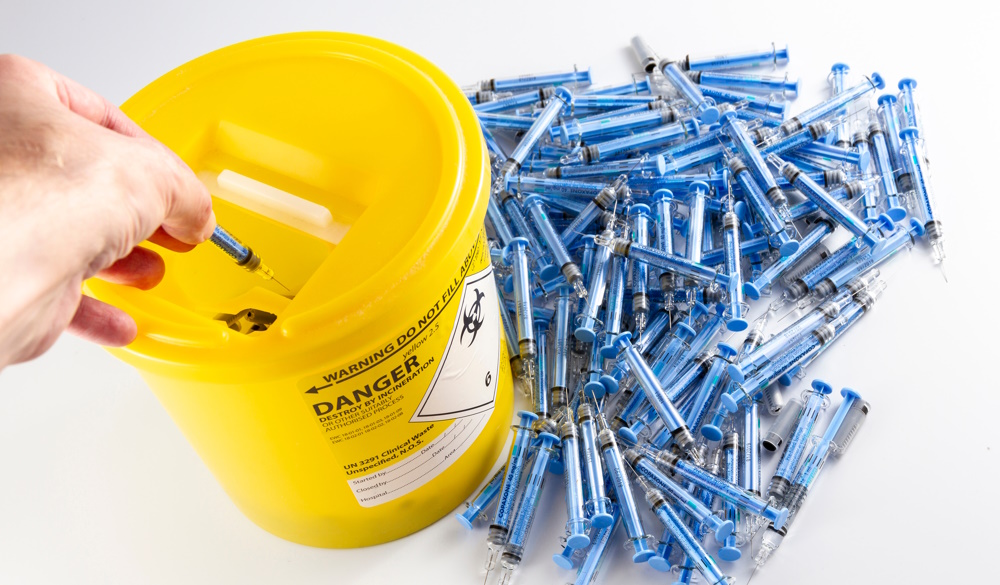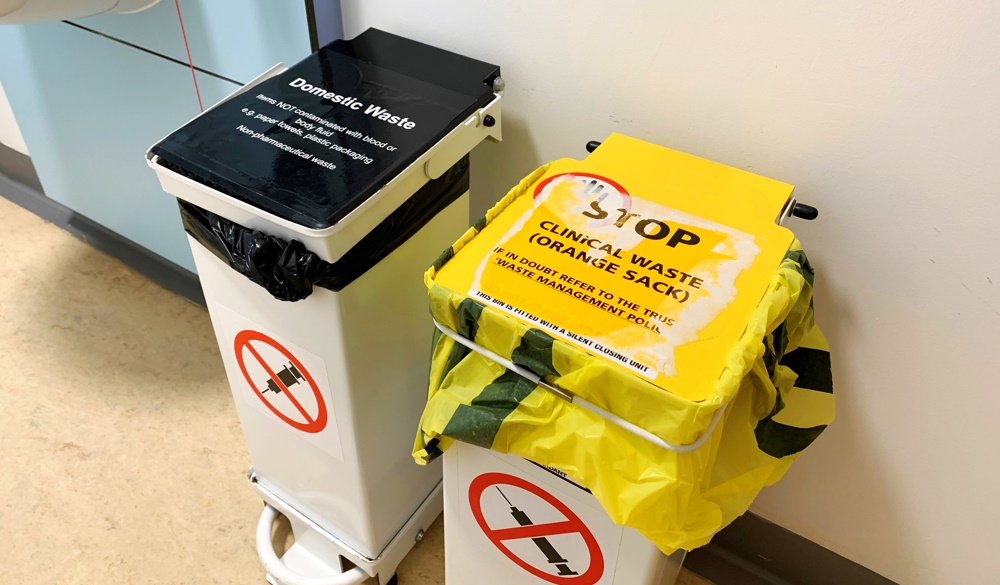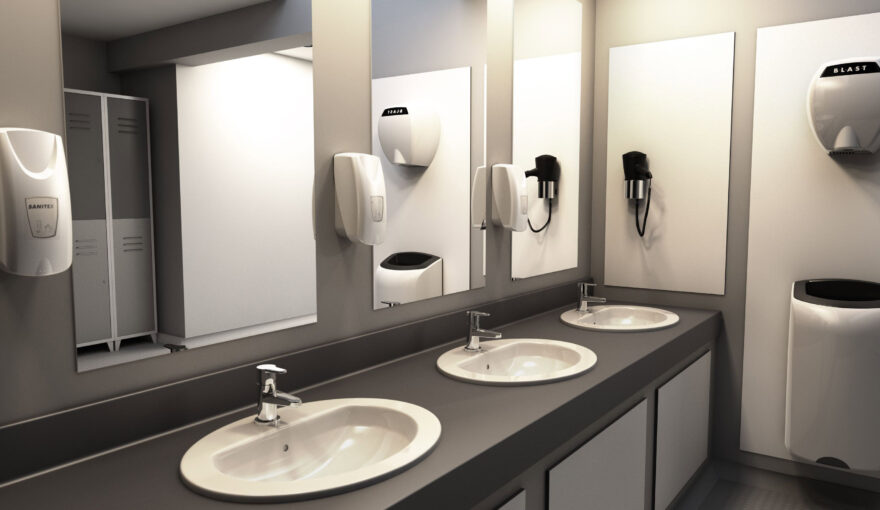Maintaining hygiene levels in healthcare facilities is a fundamental necessity with effective waste management playing a critical role. In this guide, we discuss the significance of healthcare waste management, spotlighting the crucial role of sharps bin exchange services and the management of nappy, clinical and general waste bins.

The importance of healthcare waste management
Healthcare facilities generate a diverse range of daily waste. The waste harbours potential hazards including infectious bacteria and sharp objects with the potential to cause harm if mishandled. Implementing rigorous waste management practices is necessary to mitigate risks, safeguard patients and protect healthcare workers.
Who requires healthcare waste management?
The need for comprehensive waste management services extends across a diverse range of healthcare settings, including:
- Hospitals and medical centres
- Ambulatory care facilities
- Care homes and long-term care facilities
- Dental practices
- Laboratories and research facilities
Regardless of the size or speciality, all healthcare facilities must uphold rigorous standards of hygiene and safety. By partnering with a reputable waste management provider, healthcare facilities can ensure compliance with regulatory requirements and mitigate risks associated with hazardous waste.
Sharps bin exchange services
Among the various types of medical waste, sharps pose a significant risk due to their potential to cause injuries and transmit infections. Sharps include needles, syringes, lancets and other sharp instruments used in procedures. Ensuring safe disposal of sharps is paramount to prevent accidental injuries and mitigate the transmission of bloodborne pathogens such as HIV and hepatitis.
Sharps bin exchange services play an important role in the safe and hygienic disposal of sharp materials. These services involve the regular exchange of filled sharps containers for empty ones, minimising the risk of accidental exposure to healthcare workers, waste management handlers and the general public. By adhering to strict protocols and utilising puncture-resistant containers, sharps bin exchange services mitigate hazards associated with sharp waste disposal, promoting a safer healthcare environment.
Clinical and nappy waste
Healthcare facilities must also properly dispose of clinical and nappy waste. Nappy waste consists of soiled nappies and other patient products used in patient care, while clinical waste is made up of materials contaminated with bodily fluids, pharmaceuticals or microbiological agents such as bacteria, parasites and viruses.
Dedicated nappy and clinical waste bins are essential components of effective healthcare waste management. These specialised bins are designed to contain potentially hazardous waste, prevent cross-contamination and minimise environmental contamination. Regular collection and disposal of nappy and clinical waste bins ensures compliance with government standards and standard infection control precautions (SICPs).
Our range of bins are available in 240, 660, and 1100 litres and we will provide you with the correct clinical waste bags to correctly dispose of all waste on-site.

Black bin waste
In addition to specialised waste, healthcare facilities generate general waste containing non-hazardous materials including food waste and packaging. While less hazardous than clinical waste and sharps, proper management of general waste remains integral to maintaining cleanliness and sanitation within healthcare environments.
AT NWR Hygiene we offer scheduled pick-up services for your non-recyclable commercial waste with no weight fees.
Through effective sharps bin exchange services, careful handling of nappy waste, clinical waste and general waste bins, healthcare facilities can uphold the highest standard of patient care, protect the well-being of healthcare workers and safeguard the community. Get in touch with our team today to discuss our waste management services.

